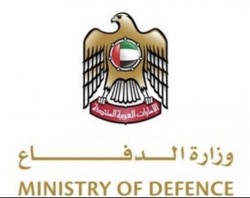Facebook v Australia: Who blinked first?
- 2021-02-25 15:40:06


 Pierre Rayer: Art, Science, and Happiness: The Universal Mission of Transmission to Future Generations through Patronage at the Louvre Abu Dhabi
Pierre Rayer: Art, Science, and Happiness: The Universal Mission of Transmission to Future Generations through Patronage at the Louvre Abu Dhabi Ahly crowned Super champions after dramatic extra-time win over Modern Future FC
Ahly crowned Super champions after dramatic extra-time win over Modern Future FC Yemeni Honey..A Development Wealth Threatened By Conflict And Climate Change
Yemeni Honey..A Development Wealth Threatened By Conflict And Climate Change California wildfires: Millions warned of possible power cut
California wildfires: Millions warned of possible power cut Central African rebels launch attacks near capital
Central African rebels launch attacks near capital IDF troops find Gaza tunnel after rain, flood-induced landslides reveal terror site, 'Post' learns
IDF troops find Gaza tunnel after rain, flood-induced landslides reveal terror site, 'Post' learns UAE Armed Forces Withdraw from Yemen "of Their Own Accord"
UAE Armed Forces Withdraw from Yemen "of Their Own Accord" Over 350 ISIS terror suspects arrested across Türkiye
Over 350 ISIS terror suspects arrested across Türkiye Pro-STC Demonstrations Erupt in Al-Ghaydah, Eastern Yemen
Pro-STC Demonstrations Erupt in Al-Ghaydah, Eastern Yemen Pentagon announces $8.6 billion Boeing contract for Israeli F-15 fighter jets
Pentagon announces $8.6 billion Boeing contract for Israeli F-15 fighter jets
